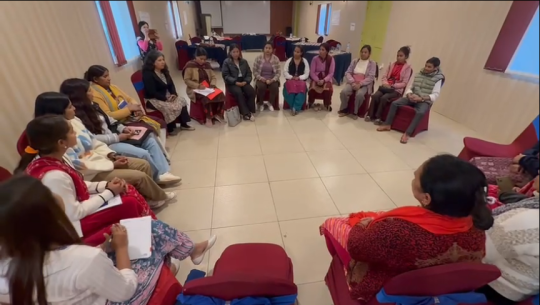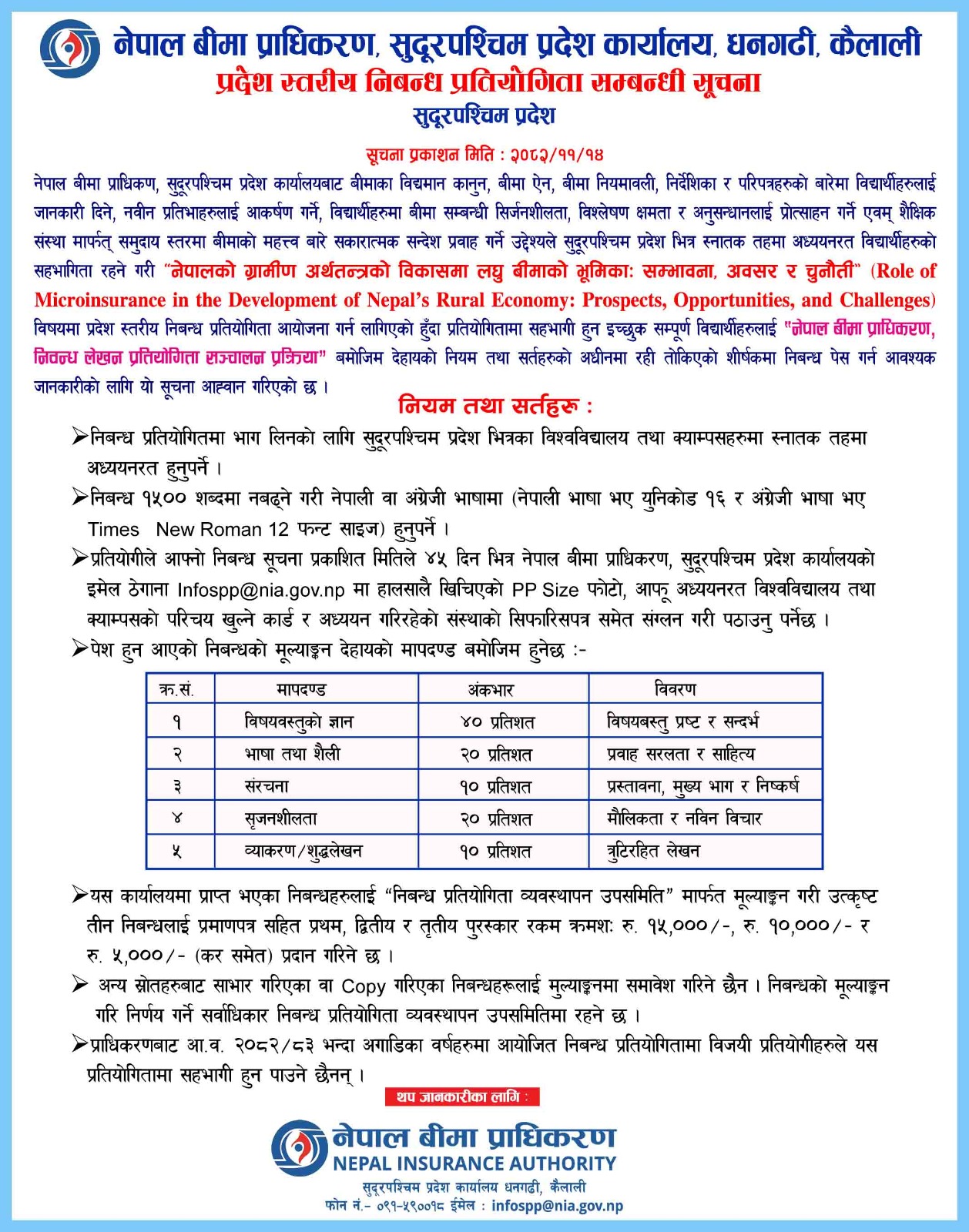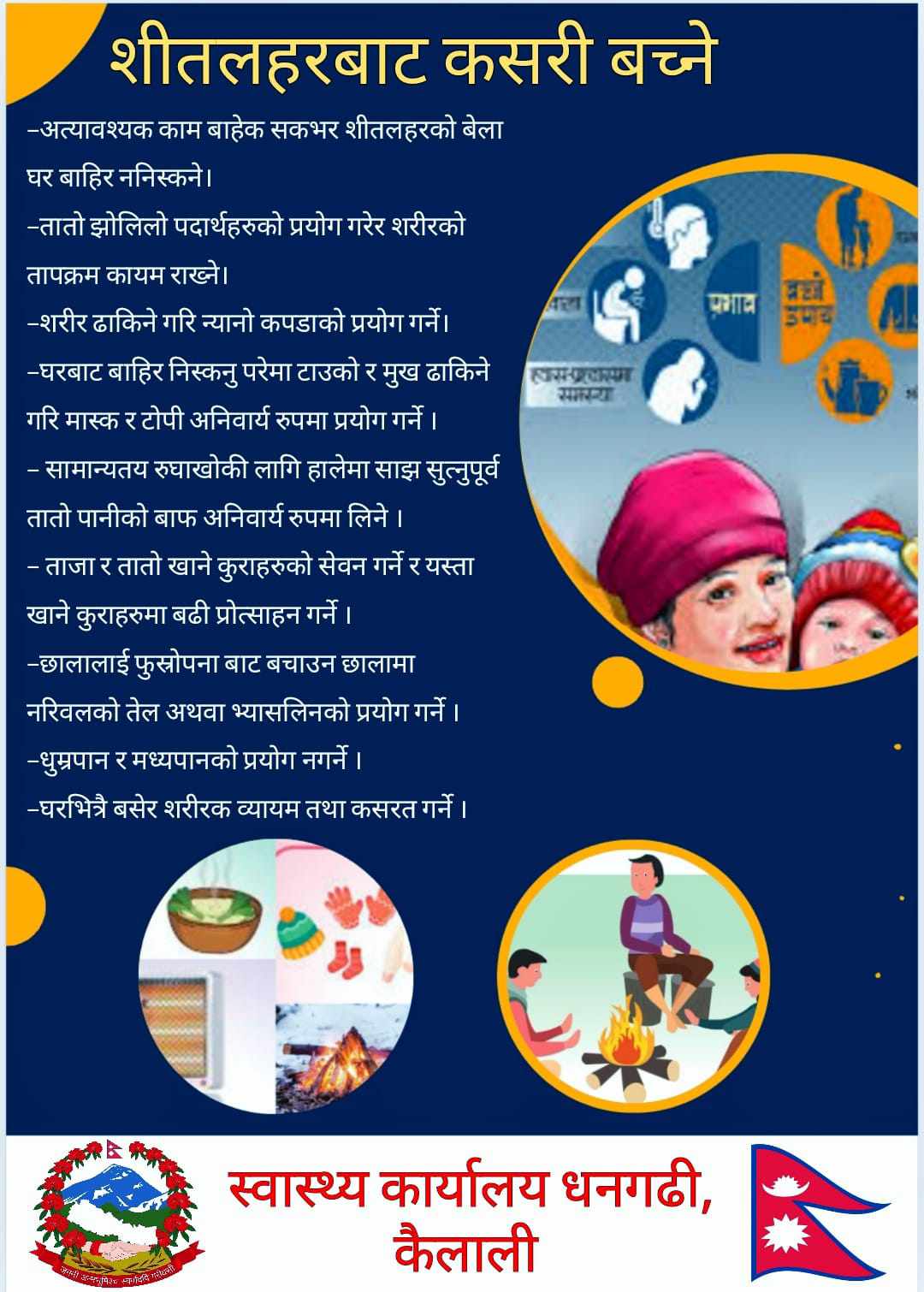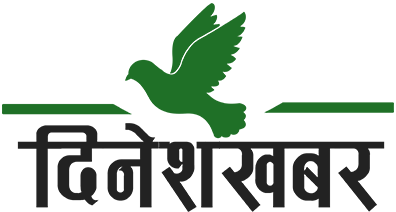Four-day training on measuring social norm change through storytelling concludes in Dhangadhi

Dhangadhi: A tiger attacked a woman while she was sleeping in a menstrual shed on 27th January.
According to police, 45-year-old Saraswati Bitalu was attacked by the tiger at night in Kuine, Mohanyal Rural Municipality-7. Deputy Superintendent of Police (DSP) Kabindra Singh Bohara, spokesperson for the District Police Office, stated that the incident occurred while Bitalu was asleep in a menstrual shed near her residence. Although, the victim survived the attack, the locals blamed her for it. According to them she was attacked because God and goddess were upset with her for not following the norms surrounding menstruation.
Despite the government of Nepal criminalizing the practice of forcing women into menstrual sheds, it persists in some regions. A law passed in August 2017 made it illegal to banish women during menstruation or post-natal, carrying penalties such as a three-month jail sentence, a fine of Rs 3,000, or both.
The bill criminalizing Chaupadi, the practice of sending women to menstrual sheds became law as part of a larger reform to replace the outdated Muluki Ain with more modern legal frameworks. This reform effort was strengthened in August 2017, when the House of Representatives endorsed the new Penal Code and Criminal Procedure Code. The law prohibits the banishment of women during menstruation and after childbirth and aims to eradicate discrimination associated with these practices.
Under the tradition, women are forced to live in sheds during menstruation and after childbirth, exposing them to dangerous conditions and potential abuse. While the government has launched various awareness campaigns since 2020 to eradicate the practice, conditions remain largely unchanged, and many women in rural areas continue to face hostility and unsafe living conditions.
In Nepal, human development continues to be hindered by inequalities related to gender, caste, ethnicity, social status, and geography. These disparities are closely linked to harmful social norms and cultural practices. Gender equality and the empowerment of women are deeply influenced by these norms, including practices such as child marriage, gender-based violence, and restrictions on women’s freedoms, all of which limit opportunities for women and girls.
Moreover, the intersection of gender with caste, ethnicity, and geography means that certain groups, like Dalit and indigenous women in rural areas, experience additional layers of discrimination. This creates a cycle of poverty, low social status, and limited access to resources, further slowing progress in human development.
Tackling these issues requires challenging traditional gender roles, pushing for legal reforms, and implementing policies that address the needs of marginalized groups. Additionally, raising awareness and educating communities about gender equality and social justice is crucial to building a more inclusive society. While efforts to address these challenges are underway in Nepal, the path to full empowerment and equality remains ongoing.
Hamro Sahakarya project is a story telling initiative by UN women with the support from Government of Finland
The project aims to understand the pathways for social norm change and the factors that drive transformative shifts toward gender equality. It focuses on Sustainable Development Goal 5, which works to empower women and girls by increasing their voices, choices, and security. The initiative is built around three key components: research, community-based programming, and advocacy, with storytelling playing a central role in challenging prevailing societal narratives.
Launched in June 2021, the research is designed to investigate how social norms can be shifted, using a feminist and participatory mass storytelling methodology. More than 1,000 stories were collected from women and girls across five districts in four provinces of Nepal in the first phase. It is currently in its second phase. Storytellers have been selected from a range of social and ethnic groups, including women, men, adolescent girls, Dalit communities, and people with disabilities, ensuring a broad representation of diverse voices.
The research is being led by The Story Kitchen along with Gender at Work, an international feminist organization and being implemented by women led organizations such as JURI, FEDO, CDWN and NDSS. The Story Kitchen, recently conducted a four-day training session at Rubus Hotel in Dhangadhi which commenced on February 3 to February 6. This training focused on preparing selected storytellers from Dhangadhi, Kailari, Dipayal, Shikhar, and Surkhet to capture the experiences of different social and ethnic groups.
Currently, the project is concentrating on five districts: Doti, Kailali, Kavrepalanchok, Sarlahi, and Surkhet. Preliminary findings from the first phase of the research highlight significant issues across these districts. In Doti and Kailali, challenges such as menstrual isolation, caste-based discrimination, child marriage, and domestic violence are widespread. In Sarlahi, there are concerns about child marriage, domestic violence, dowry, and son preference. In Kavrepalanchok, problems like witchcraft accusations, child marriage, and domestic violence persist. Surkhet faces issues such as menstrual isolation, child marriage, domestic violence, and son preference.
Jaya Luintel, co-founder and president, The Story Kitchen shared insights from her recent visits to Kailali and Doti. She said, “I visited Kailali and Doti in August and met a few women. One of them told me that when her husband was in Nepal, he would give her seeds to plant on the farm, but she had little knowledge about farming. Since his departure, she had to learn how to choose the right seeds for each season. She had no prior knowledge about which crops to harvest at different times of the year, nor was she aware of the market prices. But now, she does everything on her own: she cultivates the crops and takes them to the market to sell.”
She continued, “I met another Dalit woman in Doti who was elected in the 2017 local elections. She said that, earlier, invitations for public gatherings were addressed to the male members of the family. But now, since most of the men have migrated abroad for work, the invitations are directed at the women, so now we women attend social gatherings, weddings, and return home. In the past, women had to be specifically sought out to participate in collective projects as part of an effort to demonstrate inclusivity, so a position was reserved for a woman. But now, most of the positions are filled by women due to the shortage of men in villages.”
The four-day training program had attendees from Kailali, Doti and Surkhet. The youngest researcher is 20 years old while the oldest is 40 years old.


.jpeg)












